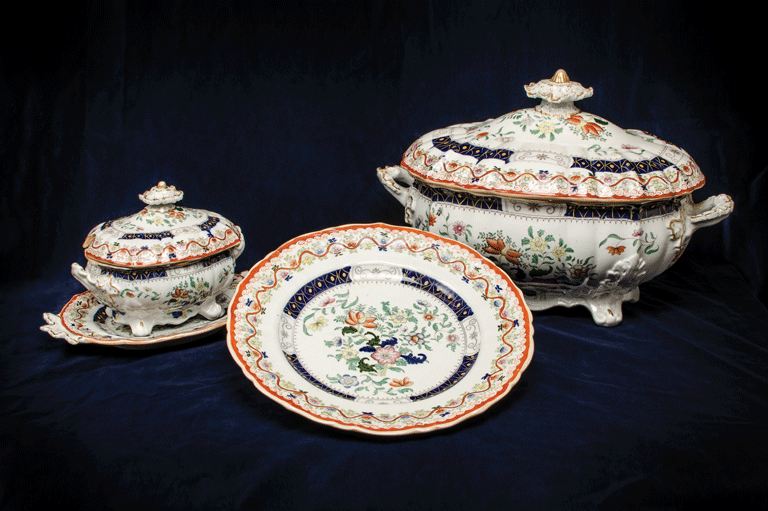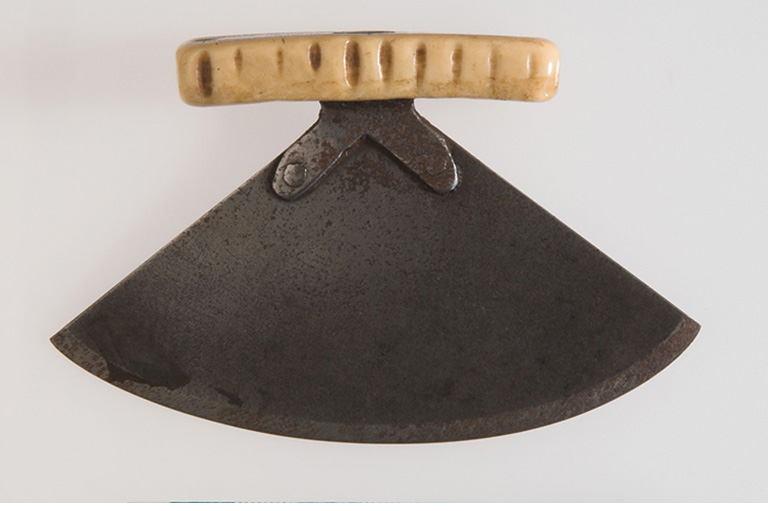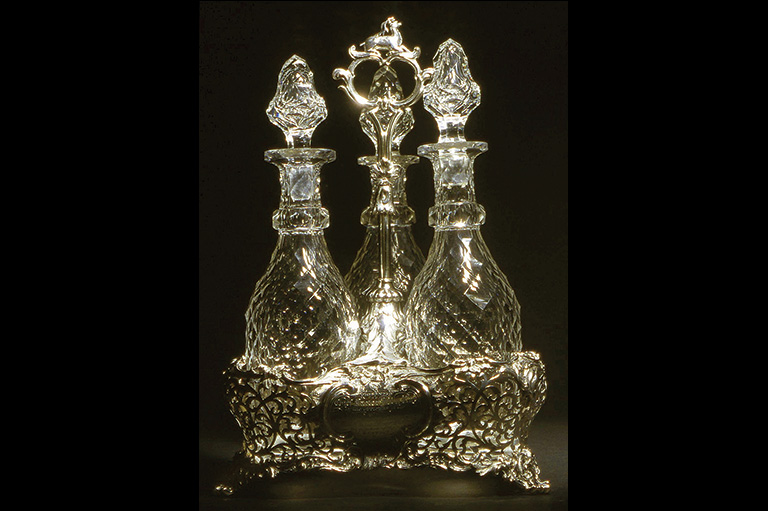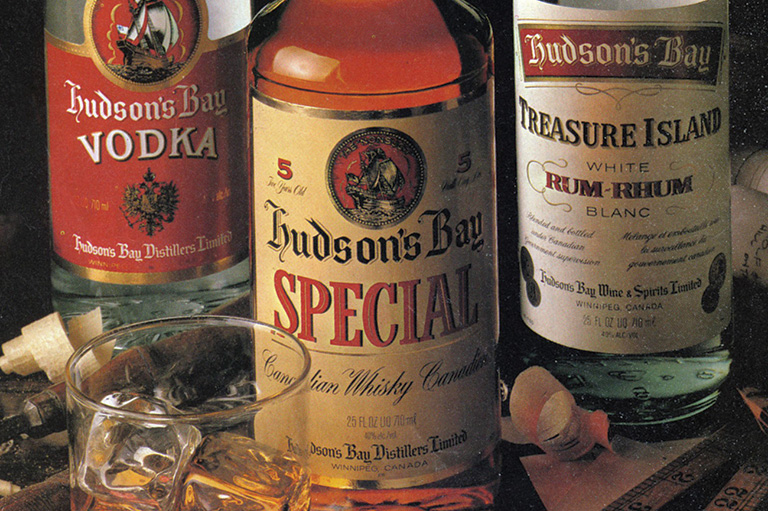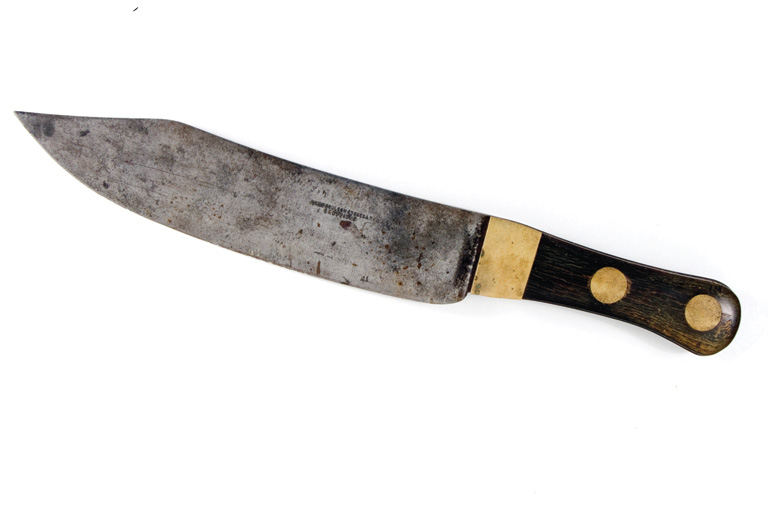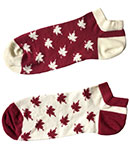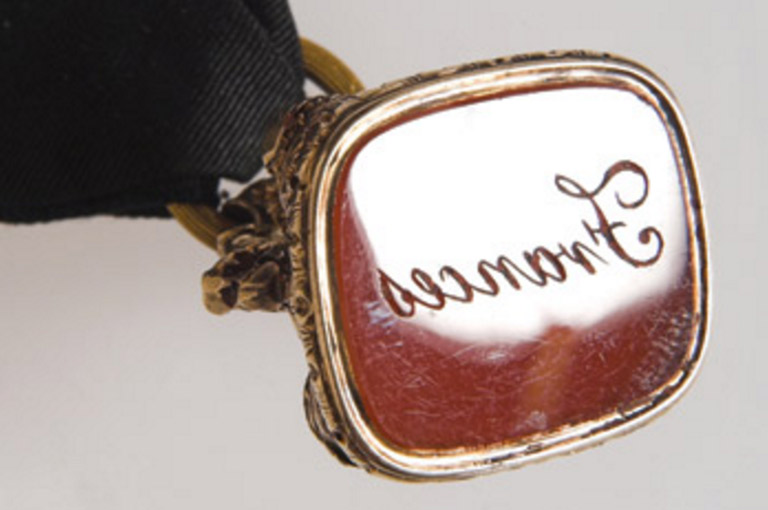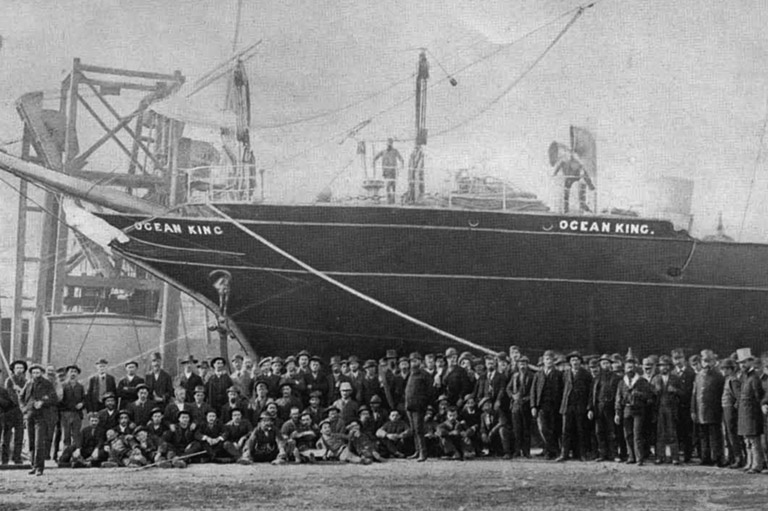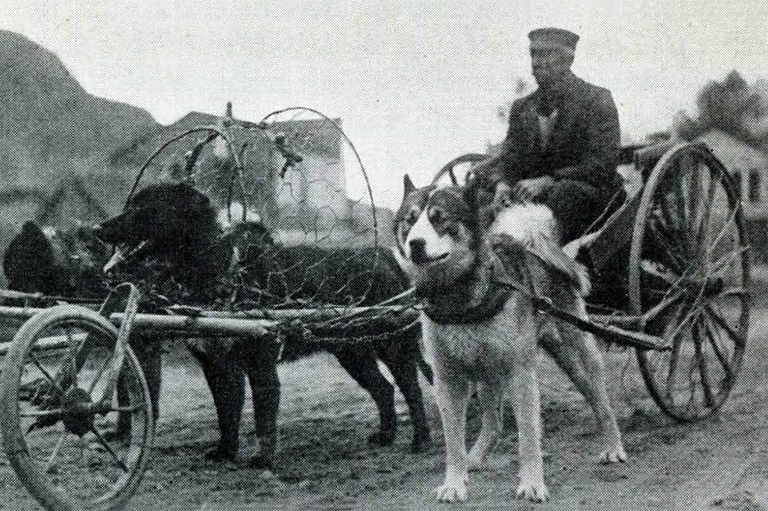Crooked Knives
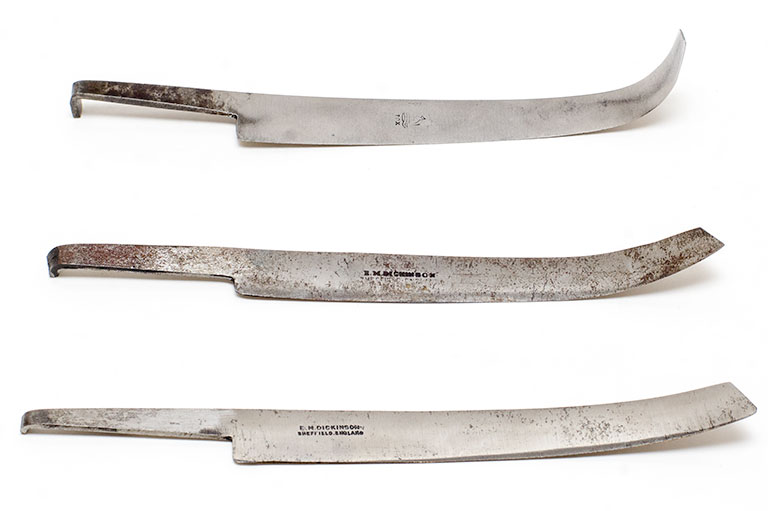
Crooked knife blades were some of the earliest trade goods brought to North America from Europe by the Hudson’s Bay Company. They were used by both labourers and Indigenous peoples throughout the fur trade era, continuing while the HBC transitioned into retail.
Blades were easy to ship in large quantities from England due to their small size. After receiving their blades, users would make handles in various styles out of wood, bone, or whatever other materials were readily available to them.
Named for the slight angle of the blade to the handle, crooked knives are one-handed drawknives used to carve various objects out of wood, including canoes and paddles, and to hollow out wooden bowls and ladles. The carver draws the blade toward the body and, by doing so, shaves off pieces of wood. Crooked knives could also be used to skin and to cut up deer and other game.
The three blades pictured here are left-handed blades. The top blade with the sharp curve at the tip is likely older than the other two and features a motif of a fox sitting on a cap, which is part of the HBC coat of arms. The two other blades were purchased in the 1950s from HBC’s merchandise depot department and represent modern examples of long-standing trade goods — European items traded with Indigenous peoples for furs — in the museum’s collection.
We hope you’ll help us continue to share fascinating stories about Canada’s past by making a donation to Canada’s History Society today.
We highlight our nation’s diverse past by telling stories that illuminate the people, places, and events that unite us as Canadians, and by making those stories accessible to everyone through our free online content.
We are a registered charity that depends on contributions from readers like you to share inspiring and informative stories with students and citizens of all ages — award-winning stories written by Canada’s top historians, authors, journalists, and history enthusiasts.
Any amount helps, or better yet, start a monthly donation today. Your support makes all the difference. Thank you!
Themes associated with this article
Advertisement

